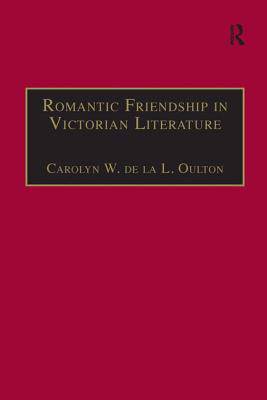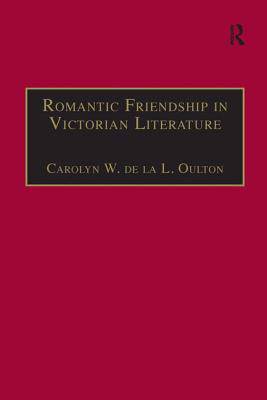
- Afhalen na 1 uur in een winkel met voorraad
- Gratis thuislevering in België vanaf € 30
- Ruim aanbod met 7 miljoen producten
- Afhalen na 1 uur in een winkel met voorraad
- Gratis thuislevering in België vanaf € 30
- Ruim aanbod met 7 miljoen producten
Zoeken
Romantic Friendship in Victorian Literature
Carolyn W de la L Oulton
€ 202,95
+ 405 punten
Uitvoering
Omschrijving
Carolyn Oulton recovers the strategies nineteenth-century authors used to justify the ideal of same-sex romantic friendship and the anxieties these strategies reveal. Informed by recent insights into the erotic potential of such relationships, but focused on romantic friendship as an independent and fully formulated ideal, Oulton departs from other critics who view romantic friendship as either nebulous and culturally naive or an invocation of homoerotic responsiveness. By considering both male and female friendships, Oulton uncovers surprising parallels between them in novels and poetry by authors such as Dickens, Tennyson, Disraeli, Charlotte Brontë, and Braddon. Oulton also examines conduct manuals, periodicals, and religious treatises, tracing developments from mid-century to the fin de siècle, when romantic friendship first came under serious attack. Her book is a persuasive challenge to those who view mid-Victorian England, existing in a state of blissful pre-Freudian innocence, as unproblematically accommodating of passionate same-sex relationships.
Specificaties
Betrokkenen
- Auteur(s):
- Uitgeverij:
Inhoud
- Aantal bladzijden:
- 184
- Taal:
- Engels
- Reeks:
Eigenschappen
- Productcode (EAN):
- 9780754658696
- Verschijningsdatum:
- 21/06/2007
- Uitvoering:
- Hardcover
- Formaat:
- Genaaid
- Afmetingen:
- 156 mm x 233 mm
- Gewicht:
- 452 g

Alleen bij Standaard Boekhandel
+ 405 punten op je klantenkaart van Standaard Boekhandel
Beoordelingen
We publiceren alleen reviews die voldoen aan de voorwaarden voor reviews. Bekijk onze voorwaarden voor reviews.











